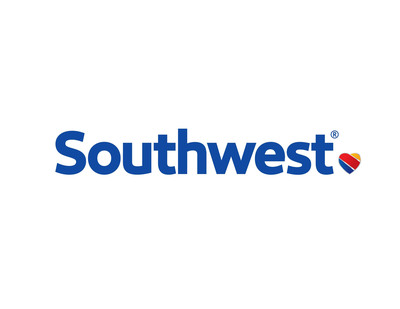SOUTHWEST AIRLINES INVESTS IN SUSTAINABLE AVIATION FUEL PILOT PROJECT SUPPORTED BY THE DEPARTMENT OF ENERGY
Southwest Airlines Co. (NYSE: LUV) has announced a significant investment in SAFFiRE Renewables, LLC, focusing on developing scalable sustainable aviation fuel (SAF) technology. This initiative, backed by a Department of Energy (DOE) grant, aims to convert corn stover into renewable ethanol, which would be upgraded into SAF. Phase one of the project includes technology validation and design for a pilot plant. Southwest aims to replace 5% of its jet fuel with SAF by 2030, aligning with broader federal goals for aviation decarbonization and contributing to its environmental sustainability efforts.
- Investment in SAFFiRE supports development of scalable SAF technology.
- Potential to significantly reduce carbon intensity by 84% compared to conventional jet fuel.
- Southwest aims to replace 5% of jet fuel with SAF by 2030.
- Alignment with federal goals for sustainable aviation fuel production.
- Uncertainty regarding the feasibility and commercialization of SAF technology.
- Dependence on government support for SAF initiatives.
Carrier's first-of-its-kind investment supports the development of technology intended to commercialize sustainable aviation fuel
DALLAS, June 1, 2022 /PRNewswire/ -- Southwest Airlines Co. (NYSE: LUV) ("Southwest" or the "Company") today announces an investment into SAFFiRE Renewables, LLC (SAFFiRE), a company formed by D3MAX, LLC (D3MAX), as part of a Department of Energy (DOE)-backed project to develop and produce scalable, sustainable aviation fuel (SAF). Funded with a DOE grant matched by Southwest's investment, SAFFiRE is expected to utilize technology developed by the DOE's National Renewable Energy Laboratory (NREL) to convert corn stover, a widely available waste feedstock in the U.S., into renewable ethanol that then would be upgraded into SAF.
In 2021, the DOE awarded D3MAX the only pilot-scale grant for SAF production, with a goal to scale technology that could commercialize SAF. According to NREL, this could produce significant quantities of cost-competitive SAF that could provide an 84 percent reduction in carbon intensity compared to conventional jet fuel on a lifecycle basis. Southwest's match of the DOE's grant supports phase one of the project, which is expected to include technology validation, preliminary design, and a business plan for a pilot plant.
"SAF is critical for decarbonizing the aviation sector," said Bob Jordan, Chief Executive Officer at Southwest®. "This is a unique opportunity to invest in what we believe could be game-changing technology that could facilitate the replacement of up to approximately five percent of our jet fuel with SAF by 2030, with the potential to significantly continue to scale beyond the decade. This first-of-its-kind investment is another step we are taking to address our environmental impact, and it also supports our efforts to partner with organizations and government entities to help our industry reach the goal of carbon neutrality by 2050."
In 2021, Southwest set a near-term goal to maintain carbon neutrality to 2019 levels while continuing to grow its operations, part of which includes replacing 10 percent of its total jet fuel consumption with SAF by 2030.
In addition to complementing Southwest's SAF goals and broader environmental sustainability efforts, this project supports the federal government's climate strategy, including an ambition for three billion gallons of SAF by 2030 through the SAF Grand Challenge.
"The Department of Energy is committed to turning our ambitious aviation decarbonization goals into realities through strong partnerships across the airline industry," said U.S. Deputy Secretary of Energy David Turk. "Moving cutting-edge technology advances in sustainable aviation to production scale will save money, reduce carbon emissions, and reshape the future of the airline travel for the benefit of American consumers."
The pilot project is intended to validate the commercialization of this corn-stover-to-ethanol technology, which could lead to a follow-up phase. If phase one is successful, DOE and Southwest would have the opportunity to fund a second phase investment for the design, fabrication, installation, and operation of a pilot plant producing renewable ethanol utilizing technology developed by D3MAX and NREL. In phase two, the renewable ethanol is planned to be upgraded into SAF by LanzaJet, Inc., at its biorefinery currently under construction in Soperton, Georgia.
"We are extremely excited to be working with Southwest Airlines—they will be a great investor," said Mark Yancey, CEO of SAFFiRE. "SAFFiRE technology is expected to produce lower carbon SAF compared to conventional jet fuel on a lifecycle basis, which could become carbon negative with process improvements and carbon capture. If we are successful in developing and commercializing this technology, we project the technology can produce 7.5 billion gallons per year of SAF by 2040."
"NREL is thrilled to contribute its research and development expertise in biofuels to this exciting collaboration with Southwest Airlines, D3MAX, and DOE to potentially bring SAF to the market quickly and economically," said Adam Bratis, Associate Laboratory Director of BioEnergy Sciences & Technology at NREL.
Southwest is one of the most honored airlines in the world and remains focused on promoting a healthier planet, but the Company can't accomplish that alone. As described in its 10-Year Environmental Sustainability Plan, Southwest's plans to reduce, replace, offset, and partner are important next steps in the journey to build a holistic approach to improve its environmental sustainability. Learn more about these efforts by visiting swa.is/planetplan.
Southwest's Focus on Environmental Sustainability
- In October 2021 established a plan of action to reduce Southwest's carbon emissions intensity by at least 20 percent by 20301 and maintain carbon neutral growth every year through the end of the decade.
- Announced multiple offtake agreements and memoranda of understanding with sustainable aviation fuel producers.
- In October 2021, Southwest announced the first U.S.-based carbon offset option where individual customers can contribute towards offsetting Southwest's carbon emissions.2
- Joined the Vision 2045 campaign, a collaboration among multiple organizations and companies to share films and resources that aim to inspire businesses and people to take action toward a more sustainable future. Southwest content showcased how the Company is making sustainability a priority through a series of near-term actions and long-term goals.
- Launched opportunities for Southwest® Business Customers to support and advance sustainability initiatives within their corporate travel portfolios.
- Committed
$10 million to Yale University's Center for Natural Carbon Capture to research technological advancements and find new solutions to reduce net greenhouse gas emissions. - Joined the Aviation Climate Taskforce, a new nonprofit founded with a goal to tackle the challenges of reducing carbon emissions in aviation.
1 As compared to 2019, includes scope 1 and 2 emissions and the use of sustainable aviation fuel, and excludes the use of carbon offsets |
2 All offsets will be retired in the name of Southwest Airlines Co. Terms and conditions apply. |
About SAFFiRE Renewables, LLC
SAFFiRE is an acronym for Sustainable Aviation Fuel From [i] Renewable Ethanol. Formed in 2022, SAFFiRE Renewables, LLC intends to first pilot, and then commercialize if the pilot is successful, proprietary technology to convert waste biomass like corn stover into renewable ethanol. SAFFiRE expects to exclusively license technology from the National Renewable Energy Laboratory (NREL) and D3MAX, LLC that, when combined, will enable the production of low-cost, low-carbon renewable ethanol. The renewable ethanol would then be upgraded into fully certified sustainable aviation fuel, utilizing alcohol-to-jet technology applied by prospective SAF producers. Learn more at http://www.saffirerenewables.com/.
Cautionary Statement Regarding Forward-Looking Statements
This news release contains forward-looking statements within the meaning of Section 27A of the Securities Act of 1933, as amended, and Section 21E of the Securities Exchange Act of 1934, as amended. Specific forward-looking statements include, without limitation, statements related to (i) the Company's expectations with respect to the feasibility of technology to convert corn stover to renewable ethanol that would then be upgraded to sustainable aviation fuel ("SAF"); (ii) the Company's expectations with respect to phases one and two of SAFFiRE Renewable, LLC's ("SAFFiRE") business, and (iii) the Company's beliefs about the amount of SAF that may be produced or that may be available for the Company's use, including by 2030, as well as the opportunity to scale beyond then. Forward-looking statements involve risks, uncertainties, assumptions, and other factors that are difficult to predict and that could cause actual results to vary materially from those expressed in or indicated by them. Factors include, among others,(i) any negative developments in any phase of SAFFiRE's business development from current concept to commercialization, including limitations on the availability of feedstock, transportation, and refinery availability; (ii) the continuation of government support for SAFFiRE's objectives and renewable fuels generally, including SAF; (iii) the consequences of competition with other existing and new sources of aviation fuel, whether or not sustainable; (iv) the ability to obtain and protect intellectual property rights relating to the development and commercialization of technology to convert corn stover to renewable ethanol; (v) the impact of economic conditions, governmental actions, climate-related conditions and weather events, fuel prices, actions of competitors, socio-demographic trends, consumer perception, and other factors beyond the Company's control, on the Company's business plans, expectations, and goals; and (vi) other factors, as described in the Company's filings with the Securities and Exchange Commission, including the detailed factors discussed under the heading "Risk Factors" in the Company's Annual Report on Form 10-K for the fiscal year ended December 31, 2021. Caution should be taken not to place undue reliance on the Company's forward-looking statements, which represent the Company's views only as of the date this release. The Company undertakes no obligation to update publicly or revise any forward-looking statement, whether as a result of new information, future events, or otherwise.
ABOUT SOUTHWEST AIRLINES CO.
Southwest Airlines Co. operates one of the world's most admired and awarded airlines, offering its one-of-a-kind value and Hospitality at 121 airports across 11 countries. Celebrating its 50th Anniversary in 2021, Southwest took flight in 1971 to democratize the sky through friendly, reliable, and low-cost air travel and now carries more air travelers flying nonstop within the United States than any other airline1. Based in Dallas and famous for an Employee-first corporate Culture, Southwest maintains an unprecedented record of no involuntary furloughs or layoffs in its history. By empowering its nearly 59,0002 People to deliver unparalleled Hospitality, the maverick airline cherishes a passionate loyalty among as many as 130 million Customers carried a year. That formula for success brought industry-leading prosperity and 47 consecutive years3 of profitability for Southwest Shareholders (NYSE: LUV). Learn more at Southwest.com/citizenship about how Southwest Airlines leverages a unique legacy and mission to serve communities around the world.
1) U.S. Dept. of Transportation most recent reporting of domestic originating passengers boarded |
2) fulltime-equivalent active Employees |
3) 1973-2019 annual profitability |
![]() View original content to download multimedia:https://www.prnewswire.com/news-releases/southwest-airlines-invests-in-sustainable-aviation-fuel-pilot-project-supported-by-the-department-of-energy-301559347.html
View original content to download multimedia:https://www.prnewswire.com/news-releases/southwest-airlines-invests-in-sustainable-aviation-fuel-pilot-project-supported-by-the-department-of-energy-301559347.html
SOURCE Southwest Airlines Co.
FAQ
What is Southwest Airlines' recent investment related to?
How much of its jet fuel does Southwest plan to replace with sustainable aviation fuel by 2030?
What are the environmental benefits of Southwest's investment in SAFFiRE?
What is the role of the Department of Energy in Southwest's investment?








